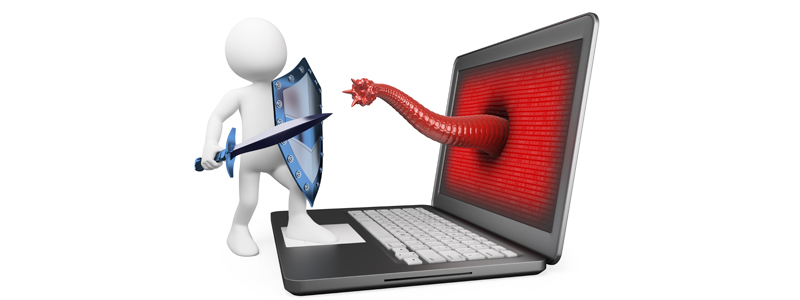
Browsing the internet safely is one of the biggest challenges these days. In a world where cyber hackers attack every 39 seconds and nearly 1 million threats are being released every single day, it is quite tough to achieve 100% cyber protection. But as they say, prevention is better than cure, it would be wise enough to stay safe by using an internet security software.
Let’s take a look at some of the most common ways through which users get their systems and devices compromised:
- Clicking on random links that redirect you to malicious websites can infect your system with malware in no time and without your knowledge.
- Downloading suspicious attachments, files or folders and enabling browser plugins can lead to automatic malware installed on your system.
- Inserting random USB Drives, DVDs, Hard Drives and other such devices can kill your system and data.
- Running unpatched software on your computer gives attackers the opportunity to exploit software vulnerabilities, crack your security and get malware onto your system.
How Useful is An Internet Security Antivirus?
Antivirus software are specially designed and developed to catch and quarantine malware before it does any damage to a system. Malware like rootkits, adware, viruses, worms, trojans, etc. can make you lose more than a fortune if not detected and removed. With an antivirus, all your sensitive data including financial statements, credentials, personal details, etc. that can be misused by attackers remains safe and secure.
It is a common myth amongst internet users that antivirus software slows down or hamper the performance of their systems. But the reality is that modern day antivirus programs are less in size and consume less memory on your system. These software are developed in such a way that they do not affect the speed of your computer.
Apart from protecting your computer system, the handheld devices such as smartphones and tablets also need internet security antivirus protection. HummingBad, which is an Android malware, has infected over 10 million operating systems. Some other notable mobile malware programs include Gingermaster, Comwarrior, Ikee, Skulls, Gunpoder, etc. A mobile security app can, therefore, be a useful program for your smartphone protection.
While the Cyber crime damage costs are estimated to hit $6 trillion annually by 2021, it is a must-to-have protection layer that each and every internet user. I hope you find my posts useful for your internet security. Read more web security tips here.
- RaaS : The Dark Side of SaaS
- Hackers Target MOVEit Transfer’s Zero-Day Vulnerability, Emergency Patch Deployed
- How Scammers Are Utilizing ChatGPT? Few Tips To Be Safe
- World Backup Day: Why Data Backups are Important in Cybersecurity
- What is Social Engineering and How Cyber Criminals Use It
- Things To Know About Personally Identifiable Information (PII)
- What is Data Breach? Why and How It occurs? How To Prevent Data Breach


